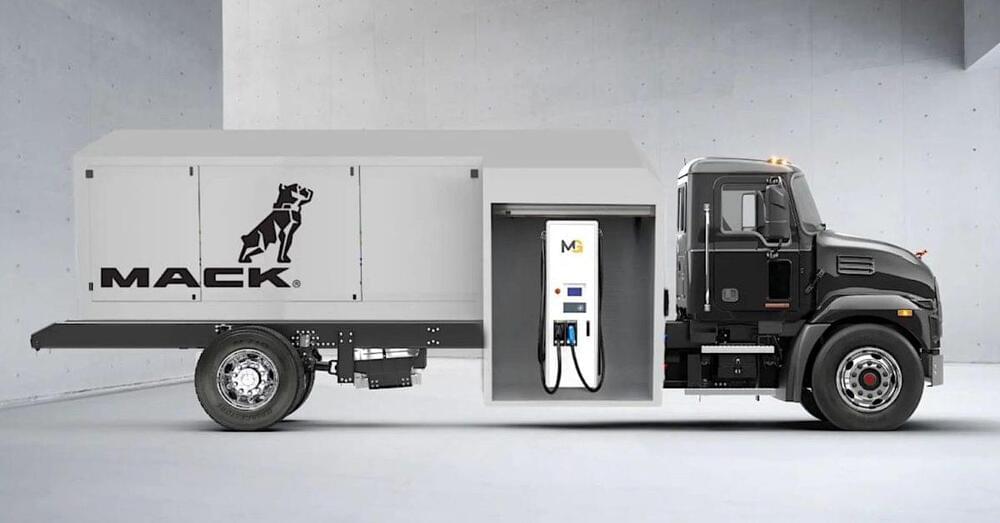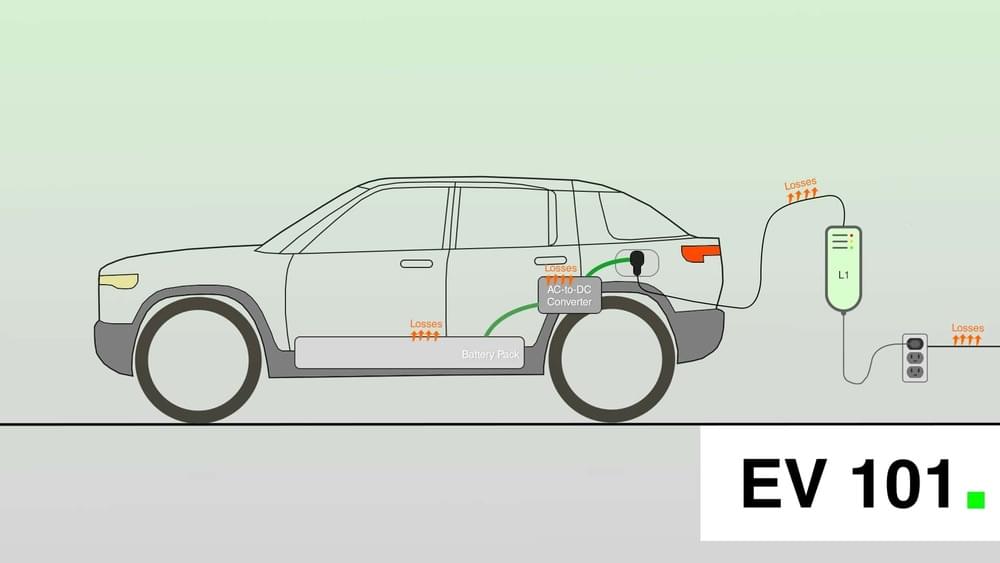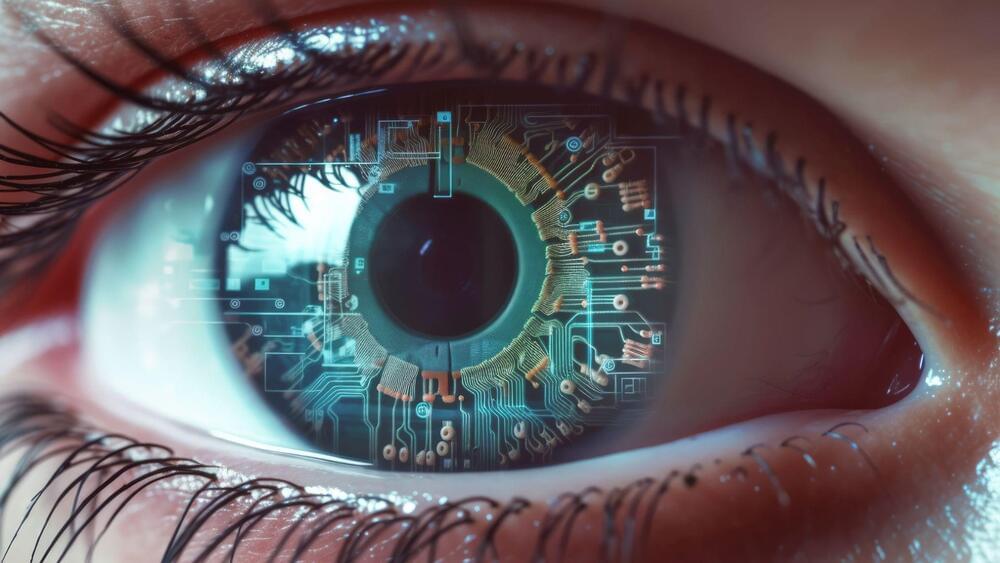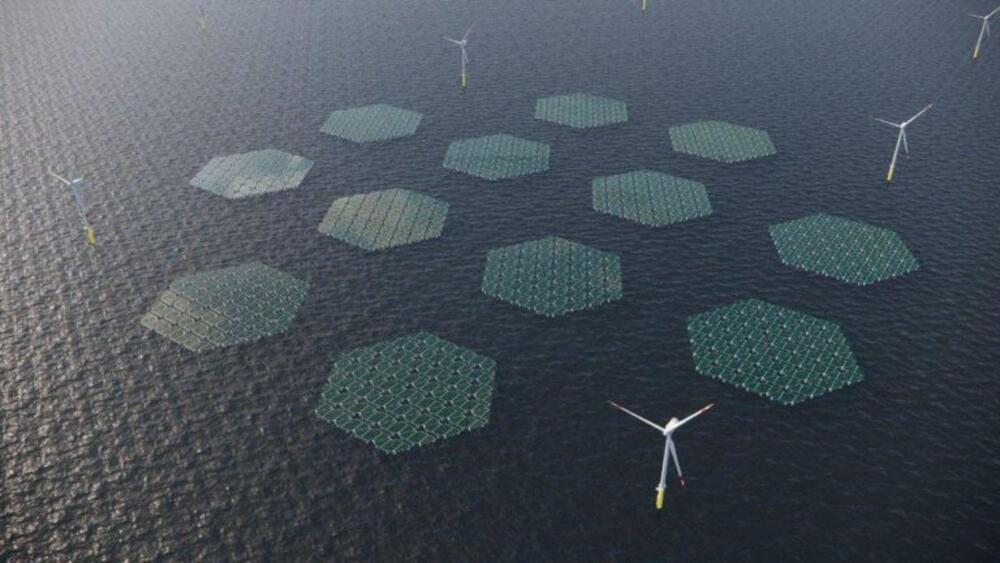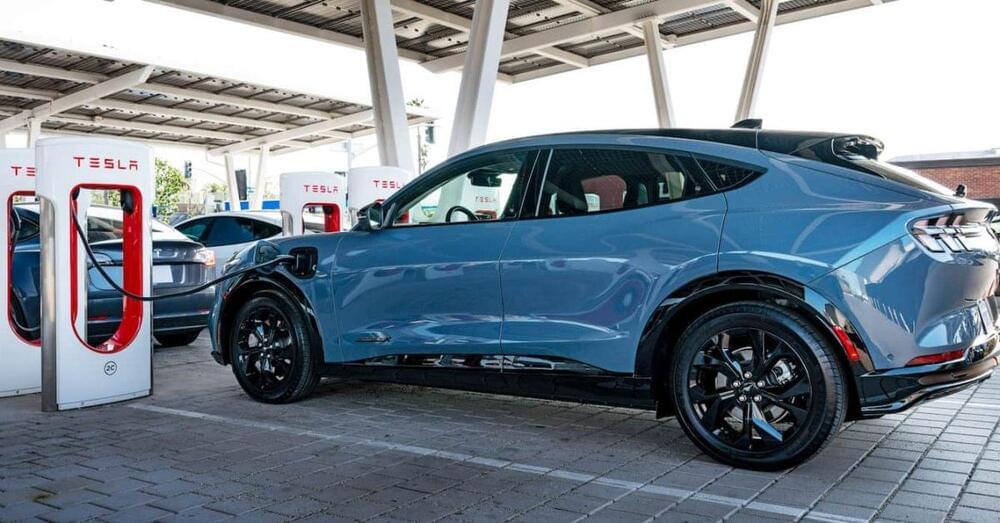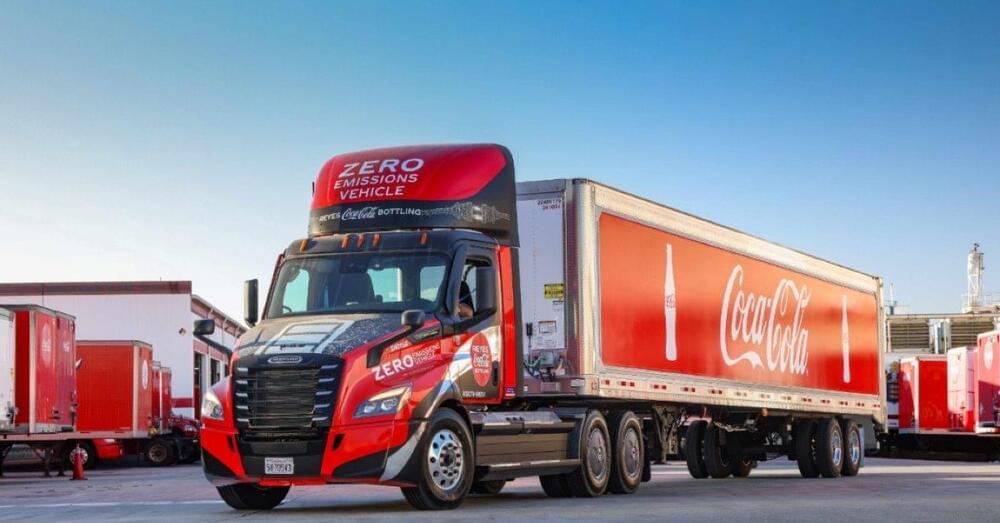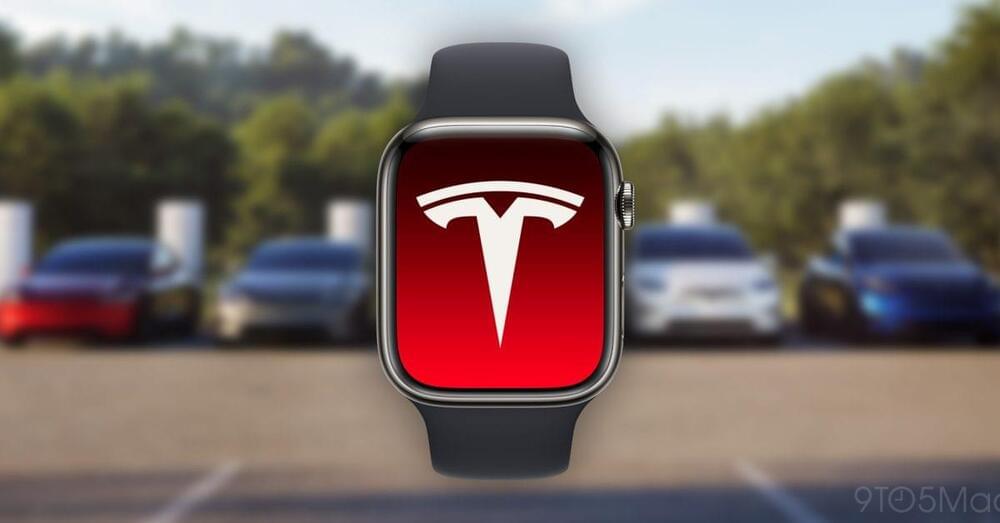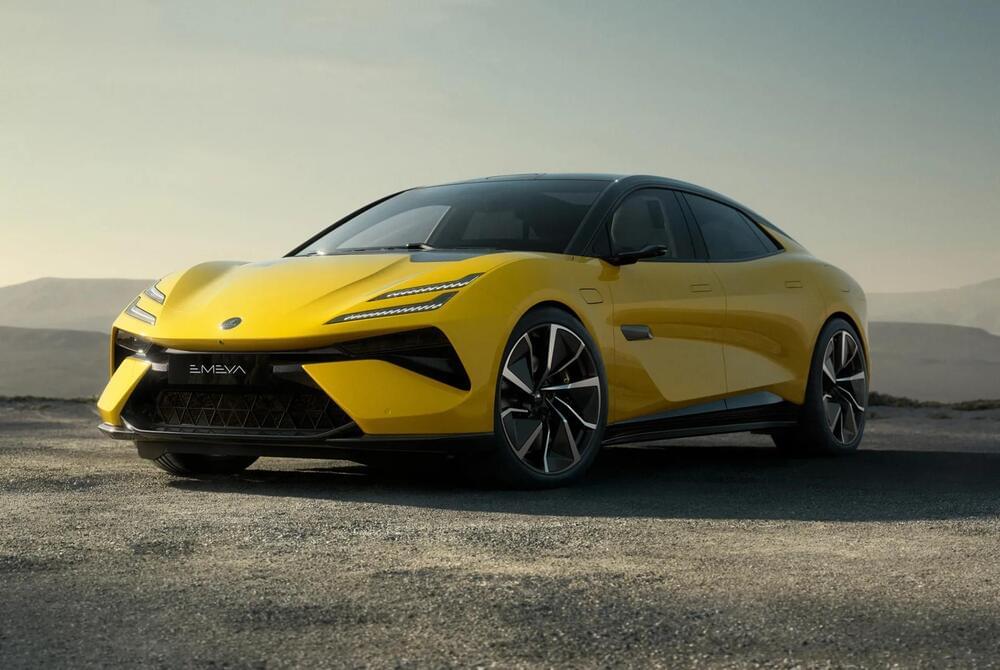The benefits of fleet electrification are well-known, but the question of feasibility is still very real in the minds of many heavy fleet managers. To help fleets understand how electric trucks can fit into their operations, Mack Trucks is offering a mobile off-grid charging system.
Mack made the announcement earlier this week at the American Trucking Associations Technology and Maintenance Council Annual Meeting, where they showed off renderings of a Mack MD Electric carrying a “renewable propane” powered generator and 120 kW charger. While somewhat clunky as a concept, it should do a reasonable enough job of pretending to be permanent infrastructure to give a fleet manager a sense of whether or not an electric solution will work for them.
“This system will allow the customer or dealer to charge trucks – whether it’s a demo unit or a multi-unit ride-and-drive event at the dealer – without having charging infrastructure readily available at their site,” says Ryan Saba, energy solutions manager for Mack Trucks. “Mack hopes that this option will help customers more easily experience the benefits of e-mobility and a more sustainable transportation option.”
